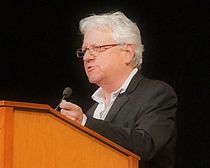Agnosticism is the view or belief that the existence of God, the divine, or the supernatural is either unknowable in principle or unknown in fact. It can also mean an apathy towards such religious belief and refer to personal limitations rather than a worldview. Another definition is the view that "human reason is incapable of providing sufficient rational grounds to justify either the belief that God exists or the belief that God does not exist."

William Albert Dembski is an American mathematician, philosopher and theologian. He was a proponent of intelligent design (ID) pseudoscience, specifically the concept of specified complexity, and was a senior fellow of the Discovery Institute's Center for Science and Culture (CSC). On September 23, 2016, he officially retired from intelligent design, resigning all his "formal associations with the ID community, including [his] Discovery Institute fellowship of 20 years". A February 2021 interview in the CSC's blog Evolution News announced "his return to the intelligent design arena".

Matthew White Ridley, 5th Viscount Ridley,, is a British science writer, journalist and businessman. He is known for his writings on science, the environment, and economics, and has been a regular contributor to The Times newspaper. Ridley was chairman of the UK bank Northern Rock from 2004 to 2007, during which period it experienced the first run on a British bank in 130 years. He resigned, and the bank was bailed out by the UK government; this led to its nationalisation.
Ignorance is a lack of knowledge or understanding. Deliberate ignorance is a culturally-induced phenomenon, the study of which is called agnotology.
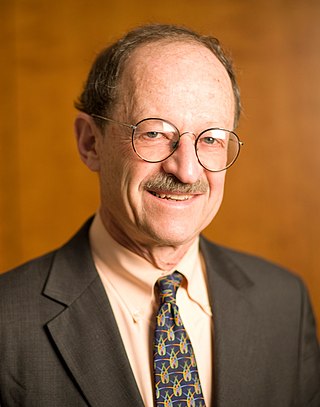
Harold Eliot Varmus is an American Nobel Prize-winning scientist. He is currently the Lewis Thomas University Professor of Medicine at Weill Cornell Medicine and a senior associate at the New York Genome Center.

Mark Lynas is a British author and journalist whose work is focused on environmentalism and climate change. He has written for the New Statesman, The Ecologist, Granta and Geographical magazines, and The Guardian and The Observer newspapers in the UK, as well as The New York Times and The Washington Post in the United States; he also worked on and appeared in the film The Age of Stupid. He was born in Fiji, grew up in Peru, Spain and the United Kingdom and holds a degree in history and politics from the University of Edinburgh. He has published several books including Six Degrees: Our Future on a Hotter Planet (2007) and The God Species: Saving the Planet in the Age of Humans (2011).

The Five Ws is a checklist used in journalism to ensure that the "lead" or "lede" contains all the essential points of a story. As far back as 1913, reporters were taught that the lead/lede should answer these questions:

Neil deGrasse Tyson is an American astrophysicist, author, and science communicator. Tyson studied at Harvard University, the University of Texas at Austin, and Columbia University. From 1991 to 1994, he was a postdoctoral research associate at Princeton University. In 1994, he joined the Hayden Planetarium as a staff scientist and the Princeton faculty as a visiting research scientist and lecturer. In 1996, he became director of the planetarium and oversaw its $210 million reconstruction project, which was completed in 2000. Since 1996, he has been the director of the Hayden Planetarium at the Rose Center for Earth and Space in New York City. The center is part of the American Museum of Natural History, where Tyson founded the Department of Astrophysics in 1997 and has been a research associate in the department since 2003.
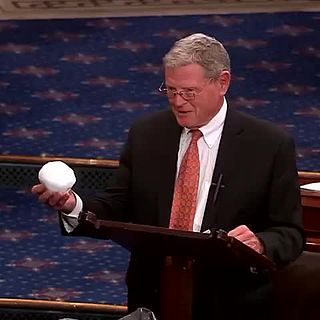
Within the sociology of knowledge, agnotology is the study of deliberate, culturally induced ignorance or doubt, typically to sell a product, influence opinion, or win favour, particularly through the publication of inaccurate or misleading scientific data (disinformation). More generally, the term includes the condition where more knowledge of a subject creates greater uncertainty.

Barry L Beyerstein was a scientific skeptic and professor of psychology at Simon Fraser University in Burnaby, British Columbia. Beyerstein's research explored brain mechanisms of perception and consciousness, the effects of drugs on the brain and mind, sense of smell and its lesser-known contributions to human cognition and emotion. He was founder and chair of the BC Skeptics Society, a Fellow and member of the Executive Council of the Committee for the Scientific Investigation of Claims of the Paranormal (CSICOP), now known as the Committee for Skeptical Inquiry. Associate editor of the Scientific Review of Alternative Medicine Journal as well as a contributor to Skeptical Inquirer, Beyerstein was one of the original faculty of CSICOP's Skeptic's Toolbox. Beyerstein was a co-founder of the Canadians for Rational Health Policy and a member of the advisory board of the Drug Policy Foundation of Washington D.C. He was a founding board member of the Canadian Foundation for Drug Policy and contributed to the International Journal of Drug Policy. According to long-time friend James Alcock, Beyerstein once addressed the House of Commons Standing Committee on Health during discussions leading up to the passage of the Controlled Substances Act". Along with his brother Dale, Barry was active in the British Columbia Civil Liberties Association.
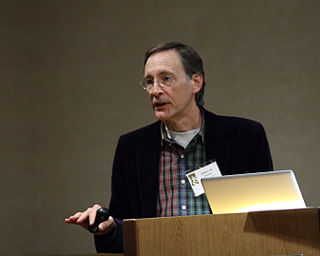
Robert Neel Proctor is an American historian of science and Professor of the History of Science at Stanford University, where he is also Professor by courtesy of Pulmonary Medicine. While a professor of the history of science at Pennsylvania State University in 1999, he became the first historian to testify against the tobacco industry.

Daniel Loxton is a Canadian writer, illustrator, and skeptic. He wrote or co-wrote several books including Tales of Prehistoric Life, a children's science trilogy, and Abominable Science!, a scientific look at cryptozoology. As editor of Junior Skeptic, Loxton writes and illustrates most issues of Junior Skeptic, a children's science section in the Skeptics Society's Skeptic magazine.
The Edge Foundation, Inc. is an association of science and technology intellectuals created in 1988 as an outgrowth of The Reality Club. Its main activities are reflected on the edge.org website, edited by publisher and businessman John Brockman. The site is a critically noted online magazine exploring scientific and intellectual ideas. In 2019, BuzzFeed News reviewed Edge’s IRS filings and reported that Jeffrey Epstein was "by far its largest financial donor", and that "his association with Edge gave him access to leading scientists and figures in the tech industry."
Possibilianism is a philosophy that rejects both the diverse claims of traditional theism and the positions of certainty in strong atheism in favor of a middle, exploratory ground. The term was invented by Robbie Parrish, a friend of neuroscientist David Eagleman who defined the term in relation to his 2009 book, Sum: Forty Tales from the Afterlives.
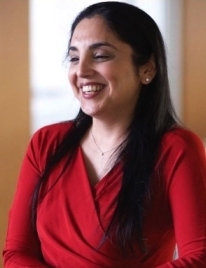
Sheena S. Iyengar is the S.T. Lee Professor of Business in the Management Department at Columbia Business School, widely and best known as an expert on choice. Her research focuses on the many facets of decision making, including: why people want choice, what affects how and what we choose, and how we can improve our decision making. She has presented TED talks on choice and is the author of The Art of Choosing (2010).

The Moral Landscape: How Science Can Determine Human Values is a 2010 book by Sam Harris, in which he promotes a science of morality and argues that many thinkers have long confused the relationship between morality, facts, and science. He aims to carve a third path between secularists who say morality is subjective and religionists who say that morality is dictated by God and scripture.

A Universe from Nothing: Why There Is Something Rather than Nothing is a non-fiction book by the physicist Lawrence M. Krauss, initially published on January 10, 2012, by Free Press. It discusses modern cosmogony and its implications for the debate about the existence of God. The main theme of the book is the claim that "we have discovered that all signs suggest a universe that could and plausibly did arise from a deeper nothing—involving the absence of space itself and—which may one day return to nothing via processes that may not only be comprehensible but also processes that do not require any external control or direction."

Donald Ross Prothero is an American geologist, paleontologist, and author who specializes in mammalian paleontology and magnetostratigraphy, a technique to date rock layers of the Cenozoic era and its use to date the climate changes which occurred 30–40 million years ago. He is the author or editor of more than 30 books and over 300 scientific papers, including at least 5 geology textbooks.

Daniel M. Russell is an American computer scientist.
Ann-Sophie Barwich is a cognitive scientist, an empirical philosopher, and a historian of science. She is an assistant professor with joint positions in the cognitive science program and the department of history and philosophy of science at Indiana University Bloomington. Barwich is best known for her interdisciplinary work on the history, philosophy, and neuroscience of olfaction. Her book, Smellosophy: What the Nose tells the Mind, highlights the importance of thinking about the sense of smell as a model for neuroscience and the senses. She is also noted for her analyses on methodological issues in molecular biology and neuroscience.


